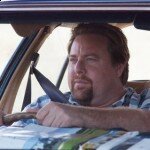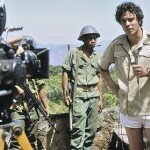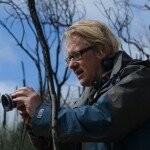Archive for the ‘Interviews’ Category
Indigenous writer/director Richard J. Frankland talks to us about breaking the mould with his film ‘Stone Bros.’, the first ever Aboriginal comedy in Australia.
Van Diemen’s Land has already enjoyed sell-out screenings at festivals across Australia (including the world premiere at Adelaide’s own Bigpond Adelaide Film Festival) and selection at Edinburgh and Montreal. On its impending Australian general release we talked to director Jonathan auf der Heide and star Oscar Redding, who revealed their thoughts on the dark side of human nature, slow evolution and a womanising convict.
We talk with ‘Fame’ director Kevin Tancharoen about the pressures of remaking a classic and making a musical drama in the wake of ‘High School Musical’.
We talk with Shane “Kenny” Jacobson about his new film ‘Charlie & Boots’, co-starring Paul “Crocodile Dundee” Hogan.
We interview director Robert Connolly and actor Damon Gameau from Balibo, discussing the film’s contemporary relevance why the film’s star, Anthony LaPaglia, initially only had a cameo in the early drafts.
Considering his last two films, Blacktown and Boxing Day, were digitally shot low-budget dramas set in urban Australia, it’s understandable why director Kriv Stenders admitted he “wanted to work on a broader canvas.” It is without question that his latest film Lucky Country, a thriller set in the Australian bushlands at the turn of the 20th century, is that canvas.
In what is a decidedly dark account of the onset of the Australian federation, Lucky Country tells of a desperate family on the brink of ruin when three strangers arrive at their farm with rumours of gold. As the lure of gold infects each member of the family, their cabin becomes a psychological battleground in which their loyalty is put to the ultimate test. There’s nothing ‘lucky’ about what results as Stenders’ film is a harrowing take on the human condition, propelled by a strong Australian cast consisting of Aden Young (The Bet, Cosi), TV’s Neil Pigot (Neighbours, The Secret Life of Us) and introducing young prodigy Toby Wallace.
With the film opening nationally on July 16th, I had the opportunity to sit down with Kriv Stenders and discuss his new film and the state of the Australian film industry on a whole. He talks of his influences as a filmmaker, why he shot Lucky Country in film despite his preference of digital and how he believes “99% of directing is casting”.
“Everything I’ve done up to the point of making Last Ride felt like it was a rehearsal”, says Australian director Glendyn Ivin. If that’s the case, it’s been one hell of a rehearsal.
At the 2003 Cannes film festival in France, Ivin’s short film Cracker Bag was awarded the festival’s highest honour, the Palme d’Or. It also went on to win Best Film and Best Screenplay in the short film category at the Australian Film Institute awards. Not a bad effort for your first short film.
But where does one possibly go from there?
When it comes to adapting a highly celebrated novel for the big screen, Australian director Steve Jacobs has the right attitude. “There’s no point in redesigning the wheel,” Jacobs says in regards to his faithful adaptation of J.M Coetzee’s novel Disgrace, which marks his first film since 2001′s AFI award winning comedy/drama La Spagnola. It’s sound thinking, especially when the ‘wheel’ in question was awarded the 1999 Booker Prize and was penned by a Nobel Prize wining author.
Set in post-apartheid South Africa, Disgrace stars the impeccable John Malkovich as a disgruntled Cape Town University professor David Lurie. After carelessly having an affair with one of his students and losing his job, David decides to take refuge on his daughter Lucy’s (Jessica Haines) farm on the Eastern Cape. But the balance of power in the country is shifting. In the aftermath of a vicious attack on the farm, he is forced to come to terms with more than his ‘disgrace’ alone.

















